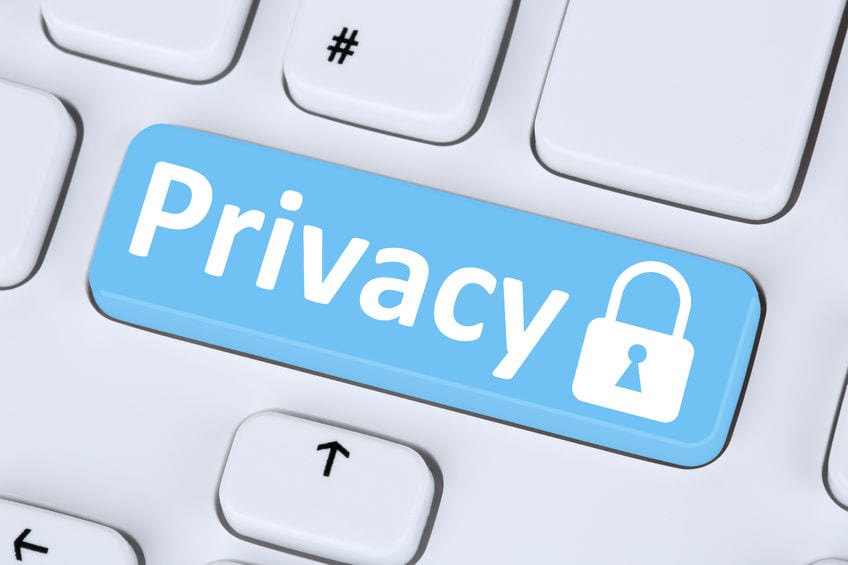The Data Privacy Battle Is Already Lost
There’s so much hullabaloo around data protection these days. The EU’s GDPR and California’s AB-375 are two primary examples of how governments are aiming to protect their citizens online privacy. But it is data that makes lives easier in so many ways. For instance, if you lose your phone, it can be easily traced using the phone signal that identifies its location with complete accuracy. If someone steals money from your bank account, you can immediately get to know of the unauthorized transaction. Even criminals can now be easily tracked using modern technology.

The Data Privacy Battle Is Already Lost
Lots of Benefits
Although almost everyone benefits from these technologies, not much thought is given to the data that makes it all possible.
When we talk about protecting our data from Internet service providers and hackers, we forget that most of our critical personal information is already exposed. For every government document, people need to provide their biometric details, from fingerprints to eye color.
Can anything be more revealing than biometric details? The government knows every piece of information about the citizens, from their address to their family details to their employment status.
Even mobile phone companies now require fingerprints from customers for the purchase of a new connection. When we book train or plane tickets, the database has all records of our travels, the bank has all details about our transaction history, the telecom provider knows all details of our calls and messages, and may also listen in on conversations.
Although we consider exposing such information normal, there’s no certainty the data will not be misused.
Information is Powerful
With the rise of ultra-modern technology like artificial intelligence and machine learning, tapping into public data has become much easier.
Every data that we share online has a corresponding metadata. For instance, the data you shared on Facebook could have been only a one-line message but the metadata contains your IP address, your location, the device you sent the update from, and other identifying information.
Few people realize how powerful this metadata is. Although deciphering metadata requires work, it isn’t impossible for someone who has the right tools.
Smart Thinking
To demonstrate how metadata reveals private information, a computer expert from Stanford University has developed an Android app that analyzes metadata. He used the app to analyze the metadata of around 800 volunteers from publicly available resources like Facebook, Google, and other social media sites.
The team used machine learning algorithms to analyze the data to accurately predict call volume and frequency, financial details, romantic partners, and health issues of the volunteers.
Even without metadata, it isn’t too difficult to lay hands upon someone’s private information. Every day, social media users share personal details about their lives – from pictures to details of vacations to the names of their spouses, children, and pets. They share where they dined last night and when they returned home, what car they drive and which school their child goes to.
People also love to share their personal opinions publicly, sharing social, religious, and political biases with friends on social media. Their friends then share the posts with their friends.
This is how Cambridge Analytica collected user data from nearly 50 million users on Facebook to construct voter profiles that showed in which way they were likely to vote in the 2016 presidential elections.
Lack of Concern
Although the awareness surrounding online data is slowly increasing, people still protect their physical protects more than they care for their digital information.
We use public WiFi to make payments, and leave our financial details on the network. We expose our phone numbers, addresses, and social security numbers without thinking twice. We don’t lock our phones despite storing our passwords on them.
We use the same password on multiple sites without two-step authentication. We provide biometric details when purchasing a new phone connection without challenging where the information is going or how it is being used.
The battle for data privacy is already lost. Only using a VPN isn’t enough when we have other gaping holes. The security threats keep increasing by the day, yet people aren’t cautious enough. Why else would someone hand over their fingerprints when registering for a phone connection?
Data will never be truly protected in this digital era, but steps can be taken to minimize the dangers. Tightening the security settings on email accounts and social media profiles and enabling two-factor authentication are some of the most basic security precautions people can take.
Vital Aspects
Posts, images, and personal data should always be kept private or seen only by those on the friends list, instead of being exposed to the public. And while handing over details like social security numbers, people must always confirm what it will be used for.
Although these may seem small steps, they will go a long way in ensuring that your data isn’t in the wrong hands. Unless we are cautious, data privacy will never be successful.





